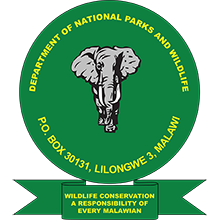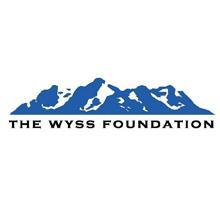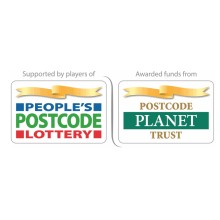-
 Malawi Department of National Parks and Wildlife (DNPW)The relationship with Malawi’s Department of National Parks and Wildlife (DNPW) is the longest-running partnership for African Parks, dating back to the agreement for the Majete Wildlife Reserve in 2003. The DNPW is the government agency responsible for the management and conservation of wildlife resources and the administration of the Wildlife Policy and National Parks and Wildlife Act. In 2015, African Parks signed an agreement with the Malawi Government, through the DNPW, to manage Nkhotakota Wildlife Reserve and Liwonde National Park. In 2018, Liwonde National Park was extended to include Mangochi Forest Reserve. Here African Parks has also partnered with the Department of Forestry, the government agency responsible for planning and providing technical extension and guidance, as well as facilitating forestry development on customary land and forest reserves. The Malawi Public-Private Partnership Commission (PPPC) facilitated the signing of these agreements. Mr Brighton Kumchedwa is the current Director of the DNPW.
Malawi Department of National Parks and Wildlife (DNPW)The relationship with Malawi’s Department of National Parks and Wildlife (DNPW) is the longest-running partnership for African Parks, dating back to the agreement for the Majete Wildlife Reserve in 2003. The DNPW is the government agency responsible for the management and conservation of wildlife resources and the administration of the Wildlife Policy and National Parks and Wildlife Act. In 2015, African Parks signed an agreement with the Malawi Government, through the DNPW, to manage Nkhotakota Wildlife Reserve and Liwonde National Park. In 2018, Liwonde National Park was extended to include Mangochi Forest Reserve. Here African Parks has also partnered with the Department of Forestry, the government agency responsible for planning and providing technical extension and guidance, as well as facilitating forestry development on customary land and forest reserves. The Malawi Public-Private Partnership Commission (PPPC) facilitated the signing of these agreements. Mr Brighton Kumchedwa is the current Director of the DNPW. -
 The Wyss FoundationThe Wyss Foundation is a private charitable organisation dedicated to supporting innovative, lasting solutions that improve lives, empower communities and strengthen connections to the land. The Foundation’s relationship with African Parks began in 2015 with a grant to support the restoration of Akagera National Park, followed by a significant investment in Malawi’s Liwonde National Park and Nkhotakota Wildlife Reserve. In 2017, the Foundation made a groundbreaking commitment of US$65m to provide ongoing support for Akagera and the Malawi parks, along with startup funding for five new parks. This enabled the addition of Pendjari and W in Benin, Bazaruto Archipelago National Park in Mozambique, Iona National Park in Angola and Matusadona National Park in Zimbabwe. In 2021, the Foundation furthered its support of African Parks with another extraordinary commitment of US$108 million, which will provide for the continued support of current Wyss-funded parks, as well as startup funding for another five new parks. Two new parks in our portfolio – Kafue National Park in Zambia and Badingilo National Park in South Sudan – are benefitting from the Wyss Foundation’s latest commitment.
The Wyss FoundationThe Wyss Foundation is a private charitable organisation dedicated to supporting innovative, lasting solutions that improve lives, empower communities and strengthen connections to the land. The Foundation’s relationship with African Parks began in 2015 with a grant to support the restoration of Akagera National Park, followed by a significant investment in Malawi’s Liwonde National Park and Nkhotakota Wildlife Reserve. In 2017, the Foundation made a groundbreaking commitment of US$65m to provide ongoing support for Akagera and the Malawi parks, along with startup funding for five new parks. This enabled the addition of Pendjari and W in Benin, Bazaruto Archipelago National Park in Mozambique, Iona National Park in Angola and Matusadona National Park in Zimbabwe. In 2021, the Foundation furthered its support of African Parks with another extraordinary commitment of US$108 million, which will provide for the continued support of current Wyss-funded parks, as well as startup funding for another five new parks. Two new parks in our portfolio – Kafue National Park in Zambia and Badingilo National Park in South Sudan – are benefitting from the Wyss Foundation’s latest commitment. -
 People’s Postcode LotteryThe Lottery manages lotteries on behalf of 20 postcode trusts. A minimum of 33% from each ticket goes directly to charities and good causes across Britain and internationally. Since 2015, African Parks has received more than £8.2m awarded by Postcode Planet Trust, thanks to funds raised by players of the Lottery. In 2022, we were awarded £1.5m through the Postcode Planet Trust, which was used to support the three Malawi parks and Garamba National Park in the DRC.
People’s Postcode LotteryThe Lottery manages lotteries on behalf of 20 postcode trusts. A minimum of 33% from each ticket goes directly to charities and good causes across Britain and internationally. Since 2015, African Parks has received more than £8.2m awarded by Postcode Planet Trust, thanks to funds raised by players of the Lottery. In 2022, we were awarded £1.5m through the Postcode Planet Trust, which was used to support the three Malawi parks and Garamba National Park in the DRC.
